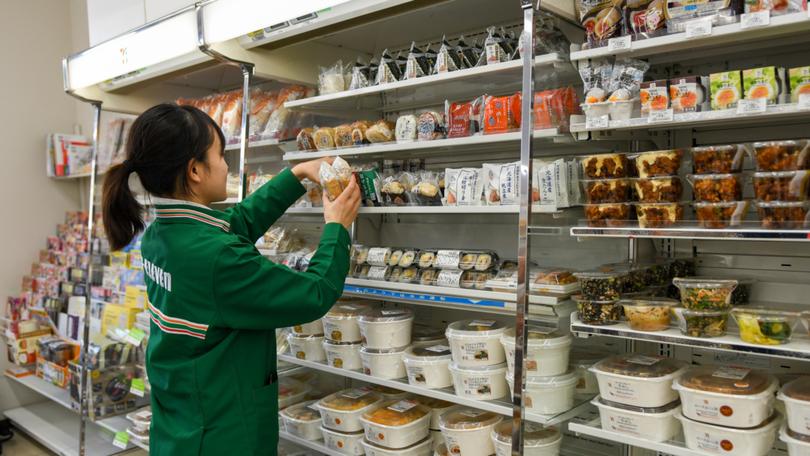7-Eleven Australia chief executive Angus McKay looks to Japanese operations as convenience competition rises
Convenience chain 7-Eleven’s Australian boss says his stores are in for a big overhaul.

Convenience chain 7-Eleven’s Australian boss says his stores may soon look a lot more like the famed Japanese equivalents as its new owners look to overhaul its offering.
The 750 7-Eleven stores in Australia were sold last November to the Japanese parent company, Seven and I Holdings, after nearly 50 years in a $1.7 billion deal.
The move came as convenience retail becomes increasingly competitive— oil giant Viva Energy is muscling in further with a collective $1.4 billion takeover of SA giant OTR (On The Run) and of Coles Express nationally, while the major supermarkets have doubled down on rapid delivery options.
Sign up to The Nightly's newsletters.
Get the first look at the digital newspaper, curated daily stories and breaking headlines delivered to your inbox.
By continuing you agree to our Terms and Privacy Policy.In Japan, 7-Eleven and other convenience stores are well-known as a part of daily life, with between 50,000 and 60,000 stores selling an array of hot food, beverages and fresh items.
7-Eleven Australia chief executive Angus McKay on Tuesday said his group’s new owners “saw potential” in the number of stores and the size of its network. Fresh food is now 30 per cent of the Australian offering and there is room to grow, he said.
“We’ve been pushing for many years now to move away from being a pure chips and chocolate retailer,” he told a KPMG retail seminar, adding the new owners would have “much higher ambitions” about Australian fresh food sales share, which was “incredibly exciting”.
“I think that’s an incredibly exciting prospect for our customers in terms of what we’ll be able to do there.
“Japanese stores ... are the high mark around the global network, the way they present themselves, the store standards, the way they operate is just seamless and we’ve got a lot to learn from them.”
He added service needed to be fast and efficient, and the company had only about 90 seconds to impress a customer given the turnover in convenience retail.
“The customer has got to feel that they are that they are getting good value for the time they spend with us and their money (too),” he said.
Separately Mr McKay said the impact of higher utilities prices on consumer behaviour needed to be considered amid the cost of living squeeze.
“Savings rates have started to decrease,” he said. “Cost of living has gone up, yes, we all talk about interest rates . . . but it is the combination of things that has really hurt the consumer — it’s low relative real wage growth over a sustained period of time, higher interest rates, and it is absolutely utilities, which we don’t talk enough about, which really hurts the consumer.
“We have a house view that Australia is a very much a confidence-based market, so every time there was a rate increase, even though it might not have been a substantial hit to someone’s wallet, it was a confidence belt to the consumer.”
He said more consumers were only half or partly filling their fuel tanks, particularly as higher petrol prices weighed on hip pockets. But they were also responding to events in real time.
“Two weeks ago with all the turmoil in the Middle East, which was effectively a two-day blip in the oil price that did result in changes to the pump price, the consumer stopped spending right across the board,” Mr McKay said.
“I think that is a dynamic we have to get used to, which is news is real-time. People react in quite extreme manners until things settle down.”
